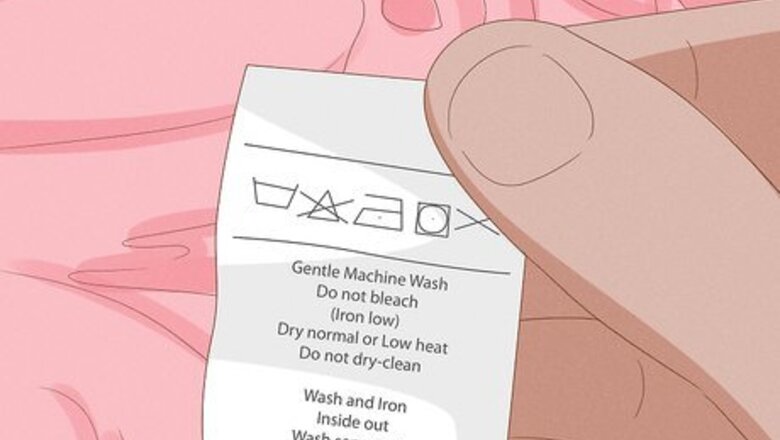
views
Choosing a Cleaning Solution
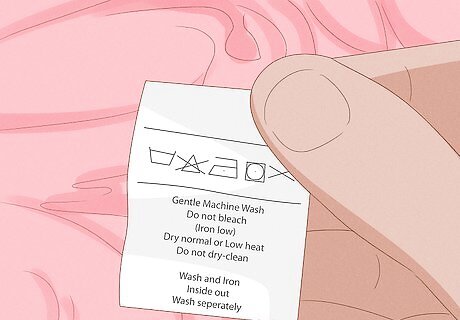
Spot-clean wool only if the item is not labeled dry-clean only. Look on the inside of the collar or elsewhere inside the garment if the item you want to spot clean is clothing. Check for the tag near one of the corners if the item is something like a blanket. If the wool item is dry-clean only, do not try to spot clean it yourself. You may end up ruining the color or otherwise damaging it.
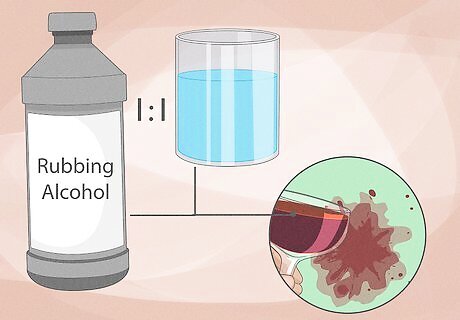
Mix equal parts water and rubbing alcohol for alcoholic beverage stains. Stir or shake the liquids together in a container or a bowl. This can work on cocktail, brown liquor, and beer stains, for example. Rubbing alcohol is less commonly known as surgical spirits.
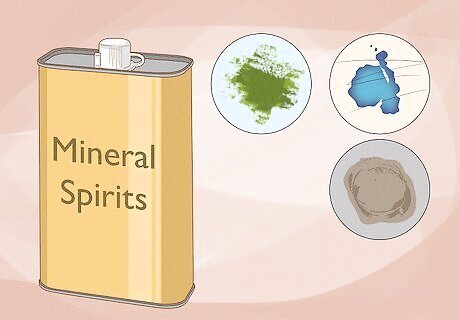
Use pure mineral spirits for oily and greasy stains, grass stains, and ink stains. Undiluted mineral spirits work on oily stains from things like butter, cooking oil, and sauces. It also works well for other greasy stains from things like makeup, lipstick, and shoe polish. Finally, it works on tough stains from things like grass and ink. Mineral spirits are also known as white spirits, mineral turpentine, petroleum spirits, and paint thinner. Keep in mind that mineral spirits can cause minor skin irritation after prolonged exposure. Be careful not to get it on your hands when you’re working with it or wear gloves to protect yourself.
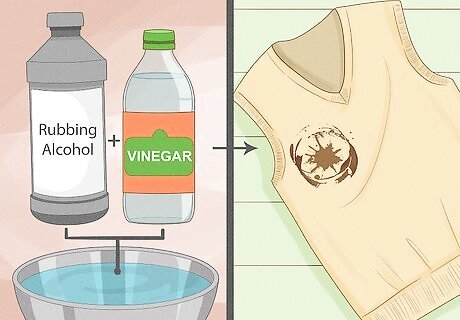
Combine equal parts rubbing alcohol and white vinegar for coffee stains. Mix the liquids together in a bowl or container. This also works for chocolate and tea stains, but you should treat them with pure mineral spirits first. If the coffee stain is from a coffee that contains milk, treat the stain with undiluted mineral spirits first.
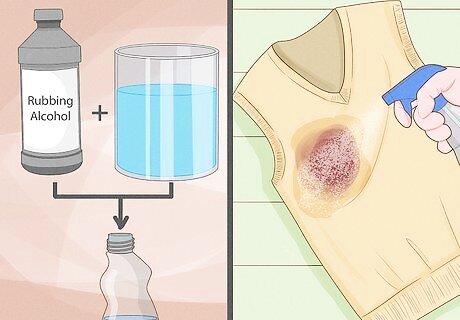
Mix 3 parts rubbing alcohol with 1 part water for red wine or fruit juice stains. Combine the liquids in a bowl or a container and stir or shake them together to dilute the rubbing alcohol. This solution works well for stains from fruit-derived products. This also works for stains from fruits themselves, such as if you bit into a ripe red plum and a bit of its juices sprayed onto your nice wool sweater.
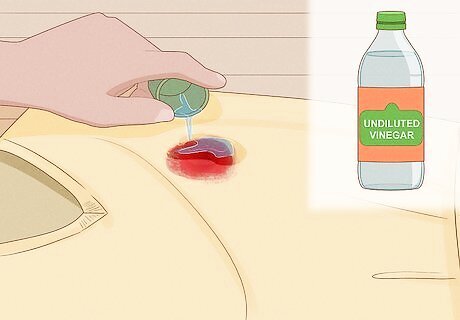
Treat blood stains with undiluted white vinegar. Vinegar helps break down and dissolve blood stains away. Keep in mind that dried blood is much harder to get out, even with vinegar. Never try to wash blood out with warm or hot water, as this can just cause it to set even more into the wool. It’s better to leave it alone until you can treat it with vinegar.
Stain Treatment
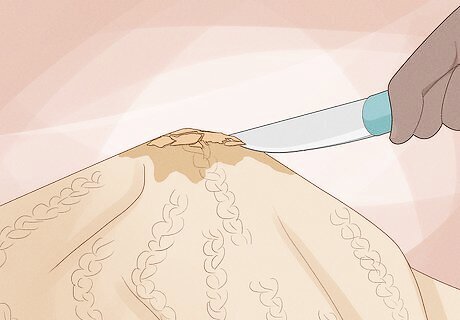
Scrape off any caked-on substances with the edge of a spoon or butter knife. Gently scrape the edge of the utensil back and forth over the stain to get rid of stuck-on residues from food or other substances. Don’t use anything sharp that could damage the wool. If the stain is just from a liquid, skip this step.
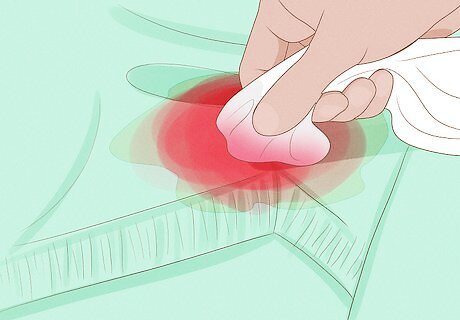
Dab fresh stains with a clean, dry paper towel or cloth to soak up excess liquid. Fold the paper towel or cloth up once or twice. Firmly press it against the stain and lift it up. Switch to a clean part of the paper towel or cloth and repeat the process until no more liquid is lifting off the wool. Act as fast as possible if you have a fresh stain on your wool item to make it easier to remove.
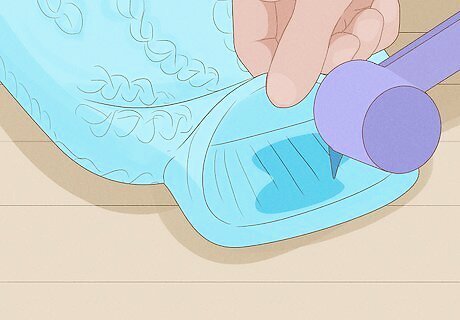
Test-blot your cleaning solution on an inconspicuous part of the wool. Dip a clean cloth into your chosen cleaning solution and wring out any excess moisture. Gently dab a part of the wool that you can’t normally see to make sure the solution doesn’t damage the color. For example, if you’re spot cleaning a sweater, test the solution on the inside of a sleeve. If the cleaning solution does alter the color of the wool, don’t proceed. Get the wool item dry-cleaned instead.
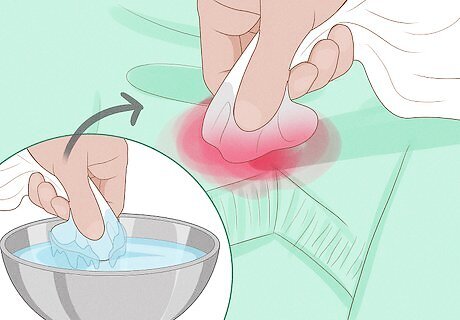
Blot the stain gently with the damp cloth until the stain lifts. Press the cloth soaked in the cleaning solution gently against the stain and lift it up. Repeat this process, dampening the cloth more as needed, until the stain disappears. If you can’t completely lift the stain, feel free to try different cleaning solutions. You might find that a combination of 2-3 different solutions does the trick! All the solutions we listed here are totally safe to use and you don’t have to worry about them reacting with one another in a negative way.
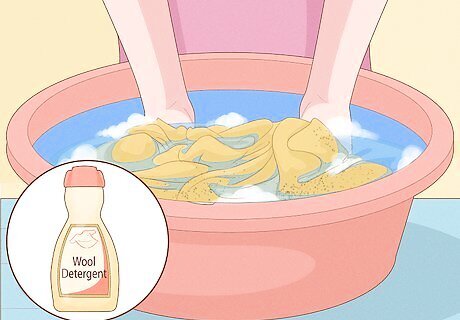
Wash items with wool soap and cold water if they are too dirty to spot-clean. Soak the item in a clean tub or bucket full of cold water with a bit of wool detergent. Very gently rub the soapy water into the dirty parts of the item with your hands to help lift stains. It’s typically best to hand-wash wool items instead of machine-washing them because some machine cycles can be rough on the wool. However, if you do want to wash something in a machine, choose the most gentle cycle and only use cold water.
Rinsing, Deodorizing, and Drying
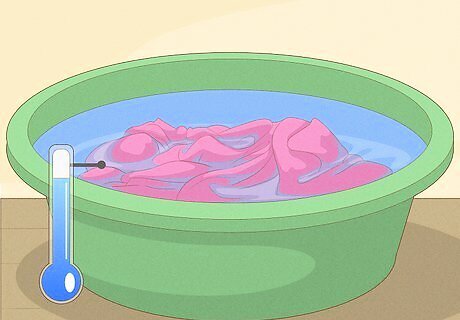
Blot spot-treated stains with cold water to remove the cleaning solution. Soak a fresh, clean, dry cloth in cold water. Dab the treated area several times to remove any residue from the cleaning solution you used. You can also rinse a spot-treated area by holding that part of the wool under cool running water for a few seconds.
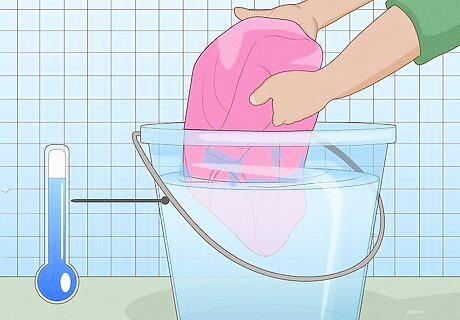
Rinse hand-washed items thoroughly with cold water and a splash of vinegar. Fill a bucket or tub with cold water and pour a splash of white vinegar in. Dunk the wool item into the bucket and gently agitate it to rinse out the wool soap. Pour out the water when you see soap suds in it and repeat the process until the water runs clean. If you machine-wash anything on a gentle, cold cycle, instead of washing by hand, the machine automatically does the rinsing for you.
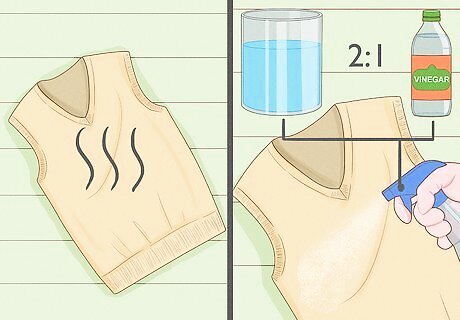
Spray wool with 1 part vinegar and 2 parts water if there are any bad odors. Pour the vinegar and water into a spray bottle and shake it to mix them. Mist the whole wool item with the solution to kill odors and freshen it up. You can also do this any time your wool item gets a little musty. It doesn’t have to be only after you spot clean a stain.
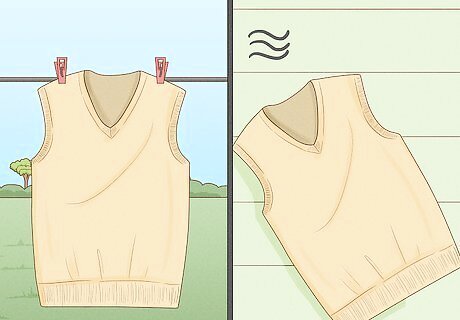
Hang the item up or lay it flat and let it air dry. Lay heavy clothing items like thick sweaters and jackets flat on a drying rack to avoid misshaping them. Hang up light wool clothing and large items like blankets. Never put wool garments or other items in a drying machine. You’ll surely damage them this way!


















Comments
0 comment